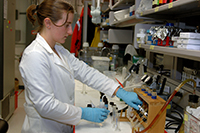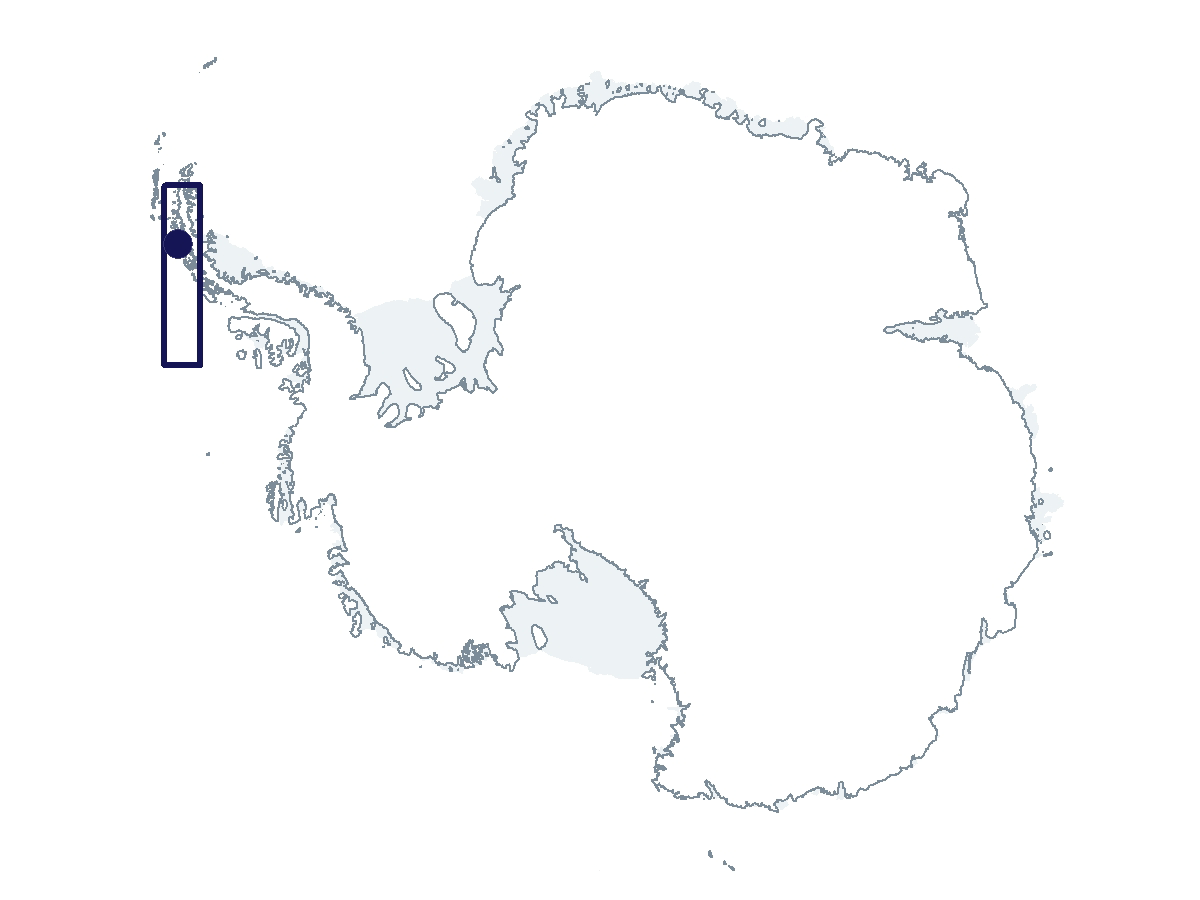2023-2024 USAP Field Season
Project Detail Project TitlePAL-LTER: Ecological Response to "Press-Pulse" Disturbances Along a Rapidly Changing West Antarctic Peninsula Summary
Event Number:
Program Director:
ASC POC/Implementer: Principal Investigator(s)
Dr. Deborah Steinberg
Project Web Site: Location
Supporting Stations: ARSV Laurence M. Gould, Palmer Station DescriptionSeasonal sea ice-influenced marine ecosystems at both poles are regions of high productivity concentrated in space and time by local, regional, and remote physical forcing. These polar ecosystems are among the most rapidly changing on Earth. Palmer Long Term Ecological Research (PAL-LTER) seeks to build on three decades of long-term research along the western side of the Antarctic Peninsula (WAP) to gain new mechanistic and predictive understanding of ecosystem changes in response to disturbances spanning long-term, decadal, and higher-frequency “pulse” changes driven by a range of processes, including natural climate variability, long-term climate warming, resiliency/recovery in the face of press versus pulse forcing, transformed spatial landscapes, and food-web alterations. We will contribute to fundamental understanding of population and biogeochemical responses for a marine ecosystem experiencing profound change. Field Season OverviewLaurence M. Gould A team of four researchers will embark on the ARSV Laurence M. Gould for the LMG24-01 cruise. The team will collect data with a conductivity-temperature-depth (CTD) rosette and from the towed EK80 sonar system, and each study station will include approximately three net tows. The team will also collect, incubate and sort live zooplankton, conduct microscope work, and preserve samples in formalin. Graduate student experiments with fecal pellet production will occur in conjunction with regular sampling. Palmer Station At Palmer Station, one team member will deploy to Palmer. Net tows and concurrent acoustic surveys will be carried out twice per week at LTER Station E from a Rigid-Hulled Inflatable Boat (RHIB) equipped with a research winch and hull-mounted EK80. Live samples will be stored in the Environmental Room and processed in the Aquarium Room. In addition to net tows, a moored sediment trap will be deployed and recovered approximately twice per week at LTER Station E with the Van Mooy group (C-045). Twice weekly trips in collaboration with other LTER groups into the Palmer Deep Canyon (Adelie penguin foraging area) and Bismarck Strait (Gentoo penguin foraging) will be conducted through the field season.
Deploying Team Members
|
2023-2024 Science Planning Summary



For USAP Participants |
For The Public |
For Researchers and EducatorsContact UsNational Science FoundationOffice of Polar Programs Geosciences Directorate 2415 Eisenhower Avenue, Suite W7100 Alexandria, VA 22314 Sign up for the NSF Office of Polar Programs newsletter and events. Feedback Form |



